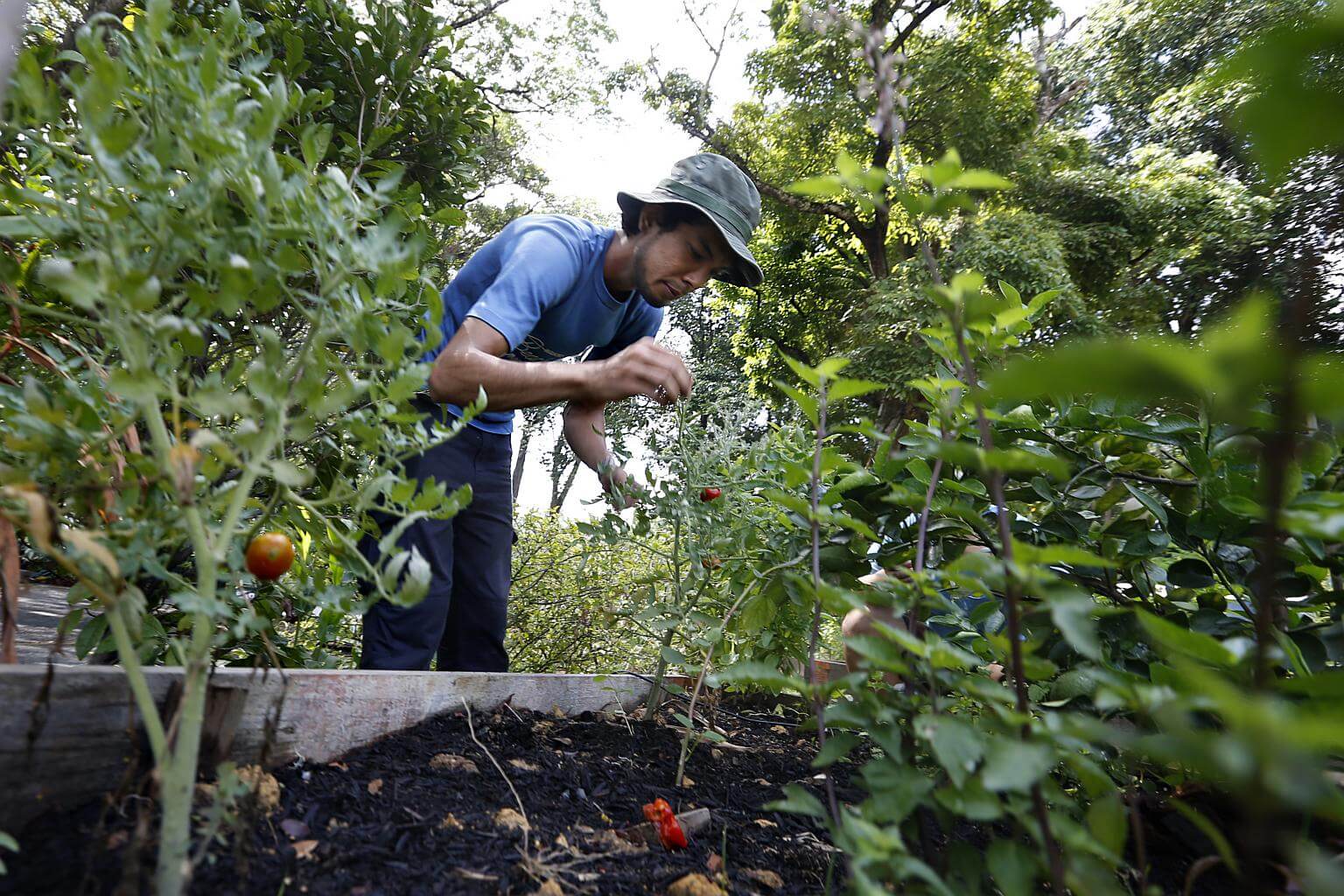Singapore can contribute to food security in the region, despite its small agriculture sector
Sign up now: Get ST's newsletters delivered to your inbox

A farmer from social enterprise Edible Garden City (EGC) working at Open Farm Community (OFC) set in a 35,000 square foot garden in Dempsey.
PHOTO: THE BUSINESS TIMES
Carolyn Khew
Follow topic:
SINGAPORE - The agriculture sector in Singapore may be small but the country can still contribute to food security in the region, said Coordinating Minister for Infrastructure and Minister of Transport Khaw Boon Wan on Thursday (Oct 6).
He was speaking at the opening ceremony of the 38th Meeting of the Asean Ministers on Agriculture and Forestry which Singapore is hosting. It also marked the opening of the 16th AMAF Plus Three Meetings, which includes China, Japan and South Korea.
"Even though the agriculture sector is small in Singapore, we can contribute and play our part in food security," said Mr Khaw.
To that end, the Government has been helping the local agriculture sector transform to be highly productive and resilient. It has been developing vertical farms, for instance, which can produce five times more vegetables than conventional farming systems.
"We envision our farms of the future to be high-tech, innovative, highly intensive and productive," said Mr Khaw.
"There is potential for Singapore to be a living lab for new production technologies."
Agriculture is a key engine of economic growth for Asean member states. As one of the most productive agricultural baskets of the world, the region is home to some of the world's largest rice exporters.
But while the region's food security depends on each country's ability to become more productive and resilient, this will become challenging due to uncertainties such as climate change, Mr Khaw said.
Apart from food security, anti-microbial resistance in agriculture is also another issue that needs to be addressed. Calling it an emerging concern, Mr Khaw said that anti-microbial resistance can threaten global public health, and significantly impact agriculture, food security and safety, as well as food trade.
Anti-microbial resistance refers to micro-organisms such as bacteria and fungus, that have become resistant to anti-microbial substances. This could be caused by the excessive use of anti-microbials leading it to become ineffective in the long run.
To address the issue, Singapore will focus on building up regional laboratory testing capability among Asean Member States, among other efforts, added Mr Khaw.
The meeting is where representatives from Asean nations gather to discuss cooperation in food, agriculture and sustainability. The last time Singapore chaired the meeting was in 2006.

